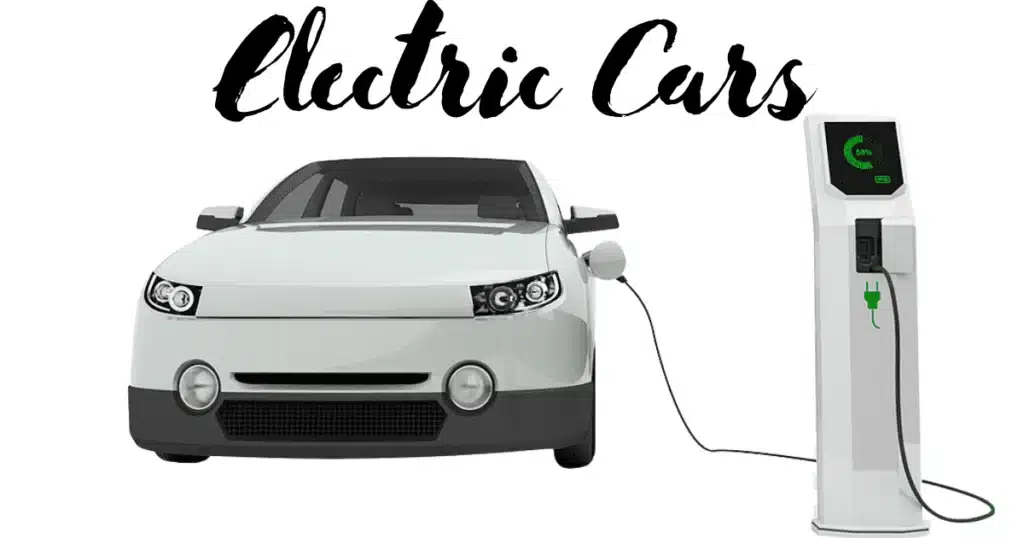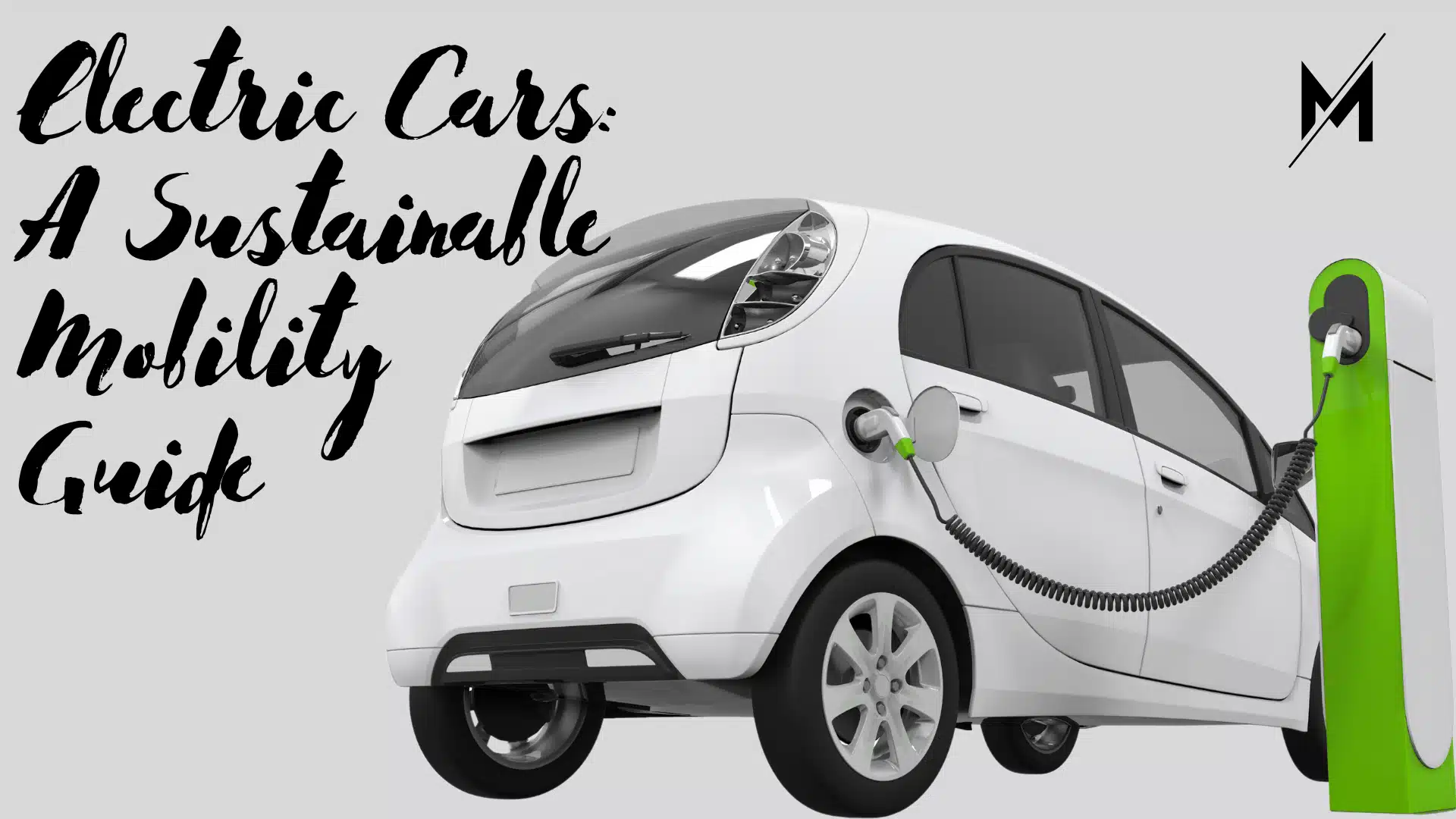Introduction to Electric Cars
Electric cars, also known as electric vehicles (EVs), are automobiles powered by electric motors using energy stored in rechargeable batteries. They offer a cleaner and more sustainable alternative to traditional internal combustion engine vehicles. The concept of electric vehicles dates back to the early 19th century, but recent technological advancements have significantly enhanced their performance and viability in the automotive market. One of the primary advantages of it is their potential to reduce carbon emissions and dependence on fossil fuels.

How Electric Cars Work
These are powered by rechargeable lithium-ion batteries, which are the primary energy source. These batteries supply electricity to an electric motor, which drives the vehicle. Unlike gasoline-powered cars that require combustion engines, electric cars use an onboard charger to convert alternating current (AC) from the power grid into direct current (DC) to charge the battery. The electric motor then converts this stored energy back into mechanical energy to propel the vehicle forward.
Types of Electric Cars
Battery Electric Vehicles (BEVs)
These vehicles run solely on electricity and do not have a traditional internal combustion engine. They must be plugged into an external power source to recharge.
Plug-in Hybrid Electric Vehicles (PHEVs)
PHEVs combine an electric motor with a gasoline engine. Furthermore, they can be charged via an outlet and also use gasoline as a backup power source.
Hybrid Electric Vehicles (HEVs)
HEVs use both an electric motor and a gasoline engine for propulsion. Moreover, they do not require external charging,, as they recharge the battery through regenerative braking and the internal combustion engine.
Fuel Cell Electric Vehicles (FCEVs)
FCEVs utilize hydrogen fuel cells to generate electricity, powering an electric motor. They emit only water and heat as byproducts.
Advantages of Electric Cars
Electric cars offer numerous advantages, including:
Environmental Impact
Electric cars produce zero tailpipe emissions, reducing air pollution and greenhouse gas emissions, thus combating climate change.
Lower Operating Costs
Electric vehicles have fewer moving parts than internal combustion engines, lowering maintenance costs. Additionally, electricity is generally cheaper than gasoline.
Enhanced Driving Experience
Moreover, electric cars often provide smooth and instant acceleration, offering a quieter and more responsive driving experience compared to conventional vehicles.
Challenges and Limitations
Range Anxiety
The limited driving range of some electric cars remains a concern for potential buyers. However, advancements in battery technology are continually extending the range.
Charging Infrastructure
The availability of charging stations is a crucial factor in the widespread adoption. Efforts are ongoing to expand and improve charging infrastructure worldwide.
Battery Technology
Despite significant advancements, challenges such as battery degradation over time and the environmental impact of battery production persist. Research focuses on improving battery efficiency, lifespan, and sustainability.
Top Electric Car Models in the Market
Tesla Models
Tesla, led by its CEO Elon Musk, has been a pioneer in the electric car industry, producing models like the Model S, Model 3, Model X, and Model Y, each with its own unique features and capabilities.
Other Major Players
Companies like Nissan, Chevrolet, BMW, Audi, and Hyundai have also introduced competitive electric models, catering to different market segments and preferences.
Upcoming Electric Cars
Various manufacturers continually announce new electric vehicle models with improved range, features, and affordability, indicating the growing competitiveness and innovation in the EV market.
Impact of Electric Cars on the Automotive Industry
Electric cars are revolutionizing the automotive industry by driving significant changes.
Disruption in the Market
The rise of electric cars is challenging the dominance of traditional gasoline vehicles, prompting automakers to invest more in electric vehicle development.
Influence on Traditional Vehicles
The growing popularity of electric cars is compelling traditional automakers to diversify their offerings, incorporating more electric and hybrid options.
Future Projections
Analysts predict a rapid increase in electric vehicle adoption, with some forecasts indicating that EVs could make up a substantial percentage of global vehicle sales in the coming years.
Government Policies and Incentives
Governments worldwide are implementing policies and incentives to encourage electric vehicle adoption.
Subsidies and Incentives
Many countries offer tax credits, rebates, and subsidies for purchasing electric vehicles, making them more affordable for consumers.
Regulations and Policies
Governments are imposing stricter emission standards and setting targets for electric vehicle adoption, encouraging automakers to produce more eco-friendly vehicles.
Impact on Energy and Environment
The shift towards them has implications for energy consumption and environmental conservation, prompting policymakers to reevaluate energy sources and sustainability initiatives.
The Future of Electric Cars
The future of electric cars looks promising with ongoing advancements and innovations.
Technological Advancements
Continued research and development aim to improve battery technology, charging infrastructure, and overall vehicle performance.
Integration with Renewable Energy
Electric cars are becoming more interconnected with renewable energy sources like solar and wind power, promoting a cleaner and more sustainable energy ecosystem.
Mass Adoption and Market Expansion
As technology improves and costs decrease, experts anticipate a surge in electric vehicle adoption, leading to a broader market and increased consumer accessibility.
| Aspect | Details |
|---|---|
| Introduction to Electric Cars | Overview of electric vehicles and their environmental benefits. |
| How Electric Cars Work | Components: batteries, electric motors, charging process, and power generation. |
| Types of Electric Cars | Battery Electric Vehicles (BEVs), Plug-in Hybrid Electric Vehicles (PHEVs), Hybrid Electric Vehicles (HEVs), Fuel Cell Electric Vehicles (FCEVs). |
| Advantages | Environmental impact, lower operating costs, and improved driving experience. |
| Challenges and Limitations | Range anxiety, charging infrastructure, battery technology limitations. |
| Top Electric Car Models | Tesla models (Model S, Model 3, Model X, Model Y), other major manufacturers’ offerings. |
| Impact on the Industry | Disruption in the automotive market, influence on traditional vehicles, future projections. |
| Government Policies and Incentives | Subsidies, regulations, and policies encouraging electric vehicle adoption. |
| The Future of Electric Cars | Technological advancements, integration with renewable energy, mass adoption projections. |
| Conclusion | Summary emphasizing the potential and impact of electric cars on the automotive industry. |
FAQs About Electric Cars
How do electric cars work, and what powers them?
Electric cars utilize rechargeable batteries to power an electric motor, which drives the vehicle. Furthermore, these batteries store electricity obtained from an external power source, usually the electrical grid, and the motor converts this energy into mechanical power for propulsion.
What are the different types of electric cars available on the market?
There are several types of electric cars:
- Battery Electric Vehicles (BEVs): solely powered by electricity, requiring charging from an external power source.
- Plug-in Hybrid Electric Vehicles (PHEVs): Combining electric motors with gasoline engines and rechargeable batteries.
- Hybrid Electric Vehicles (HEVs): using both electric motors and gasoline engines without requiring external charging.
- Fuel Cell Electric Vehicles (FCEVs): Using hydrogen fuel cells to generate electricity for the motor.
What are the main advantages of using electric cars over traditional gasoline vehicles?
The benefits of it include zero tailpipe emissions, lower operating costs due to fewer maintenance needs, and a smoother driving experience with instant torque and quieter operation.
What are the challenges associated with electric cars?
Common challenges include limited driving range (range anxiety), the need for a more extensive and accessible charging infrastructure, and ongoing improvements in battery technology regarding efficiency and longevity.
Which electric car models are currently considered the most popular or successful?
Tesla models, particularly the Model S, Model 3, Model X, and Model Y, have gained significant popularity and are recognized for their performance, range, and technology. Other reputable brands like Nissan, Chevrolet, BMW, Audi, and Hyundai also offer competitive electric models.
How are these impacting the automotive industry?
These disrupt the market by compelling traditional automakers to invest more in electric vehicle development. Moreover, they’re influencing the shift towards cleaner transportation and prompting advancements in technology and infrastructure.
Are there government incentives or policies promoting the adoption of them?
Many governments offer subsidies, tax credits, and rebates to encourage consumers to purchase electric vehicles. Additionally, some countries implement stricter emission standards and regulations to favour electric car usage.
What does the future hold for them?
The future of electric cars looks promising with ongoing technological advancements, integration with renewable energy sources, and projections indicating increased adoption and market expansion.
How long does it take to charge an electric car, and what is the range of these vehicles?
Charging times vary based on the vehicle and charger type. Ranges also vary widely; some models offer over 300 miles on a single charge, while others might have a more limited range, usually between 100 and 250 miles.
Are these suitable for long journeys, considering charging limitations?
With the development of fast-charging networks and improvements in battery technology, electric cars are becoming more suitable for long journeys. However, planning routes around charging stations can make long trips feasible and more convenient for electric vehicle owners.

Conclusion: Embracing the Electric Revolution
It represent a pivotal shift towards cleaner, more sustainable transportation. Their benefits in reducing emissions, lowering operational costs, and enhancing the driving experience make them a compelling choice for the future. With continued technological advancements, supportive government policies, and growing consumer interest, electric cars are poised to transform the automotive industry and contribute significantly to a greener and more eco-friendly world.

